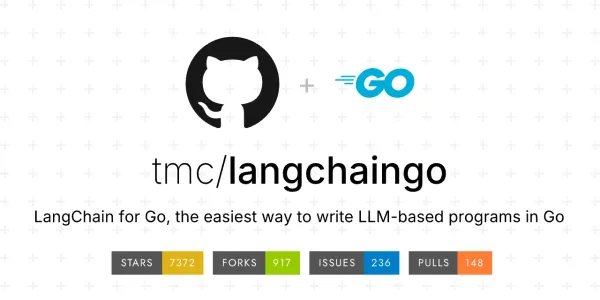Top 10 Best JavaScript Frameworks to Master in 2025

Are you looking to enhance your web development skills with the best Js frameworks? Frameworks are pre-written collections of libraries, tools, and conventions that provide developers with an organized approach to building web applications. By utilizing these frameworks, you can streamline the software development process and efficiently handle common tasks.
Introduction to JavaScript Frameworks
JavaScript frameworks are particularly beneficial for building scalable and interactive web applications. They allow developers to save time and effort by using pre-built functionalities while focusing on application-specific logic. As a result, many modern companies incorporate these frameworks into their development strategies to gain a competitive edge in the market.
In this blog post, we’ll explore the top 10 best Js frameworks that you should consider mastering in 2025. Whether you’re a beginner or an experienced developer, this guide will help you choose the right framework for your needs.
Javascript Ebook Free Download
1. Vue.js
- Overview: Vue is a JavaScript framework used for building user interface designs, following the MVVM architectural pattern.
- Key Features:
- Versatile for creating single-page applications.
- Gradual integration into existing projects.
- Excellent for creating interactive user interfaces with reactive data binding.
- Pros: Beginner-friendly with clear documentation and active community support.
- Cons: Less widely adopted, which may lead to challenges in finding specific resources or expertise.
2. Angular
- Overview: Developed by Google, Angular is a powerful open-source JavaScript framework written in TypeScript.
- Key Features:
- Suitable for creating complex, single-page applications.
- Provides two-way data binding and dependency injection.
- Well-defined structure enhances code maintainability.
- Pros: Strong community support with extensive documentation.
- Cons: Steeper learning curve and higher resource consumption.
3. React Native
- Overview: React Native enables developers to build native mobile applications for iOS and Android using a single codebase.
- Key Features:
- Reusable code across platforms.
- Instant updates with the hot reload feature.
- Extensive community support and ecosystem.
- Pros: Efficient rendering and smooth animations with a wide range of third-party libraries.
- Cons: May require platform-specific code for certain user interfaces.
4. Next.js
- Overview: A framework designed specifically for server-side rendering (SSR) and static site generation (SSG) within React applications.
- Key Features:
- Automatic code splitting for faster page rendering.
- Built-in support for API routes.
- File-based routing simplifies navigation.
- Pros: Improves SEO and page load times.
- Cons: More complex initial setup compared to simpler frameworks.
5. Nuxt.js
- Overview: A Vue-based framework focusing on SSR and SSG, Nuxt simplifies the creation of universal Vue applications.
- Key Features:
- Convention over configuration approach.
- Built-in routing and middleware functionalities.
- Extensive plugin ecosystem.
- Pros: Optimized for SEO with fast loading speeds.
- Cons: Initial setup volatility may require a deeper understanding.
6. Svelte
- Overview: Svelte compiles components into optimized JavaScript code, providing fast and efficient applications.
- Key Features:
- Minimal overhead with no runtime framework required.
- Smoother user experiences with reactive systems.
- Pros: Beginner-friendly with straightforward syntax.
- Cons: Smaller ecosystem compared to more established frameworks.
7. Gatsby
- Overview: Gatsby is an open-source framework based on React, GraphQL, and Webpack, enabling the creation of static websites.
- Key Features:
- Pre-rendering for swift load times and enhanced SEO.
- Code splitting and image optimization.
- Pros: Great for static sites that require high optimization.
- Cons: Less suitable for dynamic applications needing real-time updates.
8. Ember.js
- Overview: Ember focuses on building large-scale applications with a strong emphasis on convention over configuration.
- Key Features:
- Wide range of built-in features for simplification.
- Long-term support with backward compatibility.
- Pros: Ideal for large enterprise projects.
- Cons: Steeper learning curve for newcomers.
9. Fastify
- Overview: Fastify is a low-overhead framework designed for high-performance web applications and APIs.
- Key Features:
- Asynchronous architecture for efficient handling of requests.
- A wide array of plugins for functionality.
- Pros: Fast and reliable, ensuring data integrity.
- Cons: Potential complexity for smaller projects.
10. Express.js
- Overview: Express is a versatile JavaScript framework suitable for both small-scale and large-scale web applications.
- Key Features:
- Simplifies HTTP requests and routing.
- Vast collection of middleware for added functionality.
- Pros: Minimalist design makes it user-friendly.
- Cons: Requires additional effort for structuring larger projects.
Conclusion
In conclusion, choosing the right JavaScript framework can significantly boost your development efficiency and performance. As we approach 2025, mastering either Vue.js, Angular, React Native, Next.js, Nuxt.js, Svelte, Gatsby, Ember.js, Fastify, or Express.js will place you in a strong position within the web development landscape.
It’s recommended to focus on one or two frameworks rather than spreading yourself too thin by learning multiple ones at once. Each of these frameworks offers unique advantages suited for different project requirements, so consider your goals and project scale when making your choice.
Call to Action: If you found this guide helpful, share it with your fellow developers and subscribe to our updates for more insights on JavaScript frameworks and web development trends!



